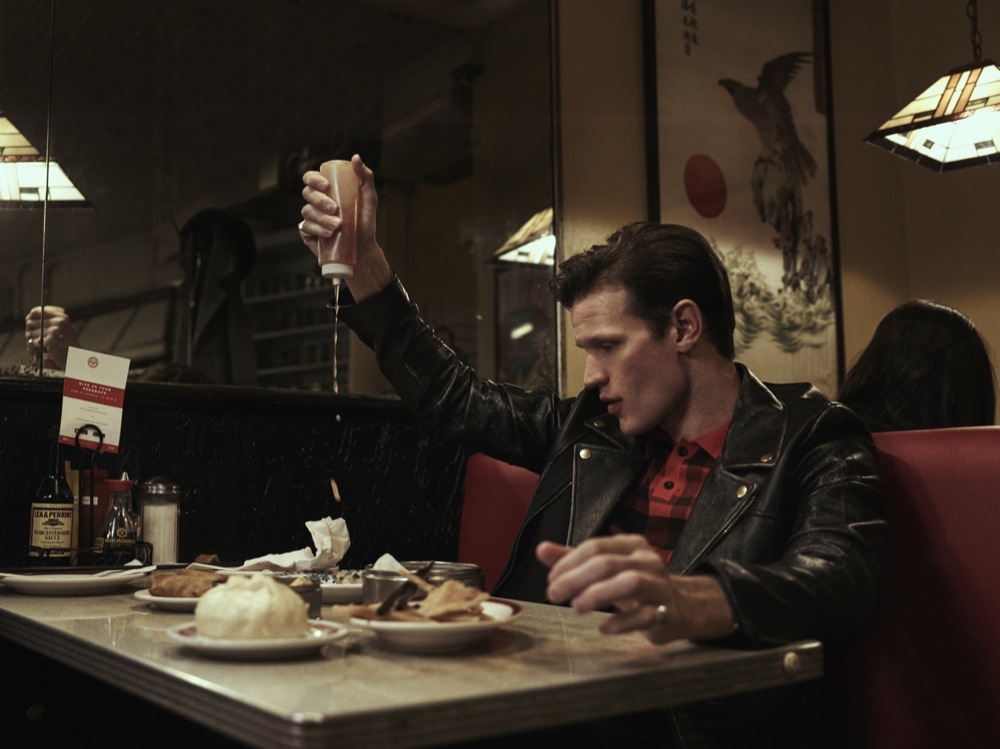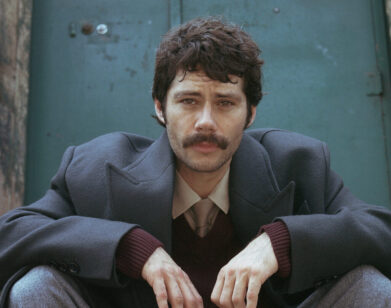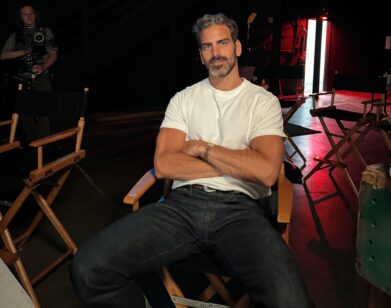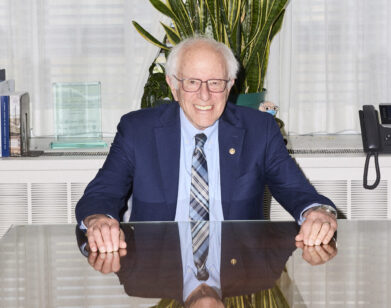Matt Smith
In 1947, not long after World War II came to a close, Princess Elizabeth Alexandra Mary married Philip Mountbatten, the newly anointed Duke of Edinburgh. In 1952, at age 25, she ascended the British throne after her father’s passing, and over a year later was crowned Queen Elizabeth II. Beneath the historical facts and ostensibly redundant changing of names, there are stories: a foreign Prince-turned-Duke-turned-husband to the Queen; true love fought for within the Royal Family; a brother’s abdication, a father’s untimely death; the duties of a sister, a wife, a mother, and a Queen. When one sees reigning Queen Elizabeth II today, this all feels far from the present. But The Crown—a new series that is now streaming on Netflix—revives it, starting with Princess Elizabeth’s wedding and continuing through the next nine years.
Matt Smith, the English actor whose final episode as the beloved titular Time Lord on Doctor Who aired in 2013, plays Prince Philip alongside Claire Foy’s Elizabeth II. Smith’s Philip is funny, insistent, and concerned, often willful and at times oblivious. While Smith had not worked with Foy before The Crown, he was a fan of her and says, “We get on fantastically well. We have a right laugh.” That comfort and shorthand is felt in their performances; while Philip loves and wants to care for the woman he married, she is no longer just Elizabeth. His relationship becomes a patriotic obligation, begging the question, are the position and person one in the same?
We spoke to Smith while he was in New York, just a few days ahead of his 34th birthday.
HALEY WEISS: Part of what I like about this series is that some period pieces brush over the historical facts, and I don’t think that happened as much in this show.
MATT SMITH: What I quite like about it is weirdly, it doesn’t feel like a massive period piece. The costumes somehow feel quite contemporary. And I’m the same as you, even about my own history I learned quite a lot—about the monarchy and the history of Britain post-World War II.
Philip, I find him quite a groovy cat. I really like him. I’m quite intrigued to learn what you think about him after a series like this, because people have mixed views about him; they think he’s quite mean. I kind of empathize with him, you know?
WEISS: I empathize with him a lot. It seemed rough: he finally makes his own home and then has to leave it; his children can’t even keep his name.
SMITH: And he’s like, “Come on, man, give me a break.”
WEISS: I thought it was tough watching him try to figure out how to love the person and support the Crown.
SMITH: Yeah, that’s the great battle. Well good, I’m pleased.
WEISS: So what first attracted you to the role? Did you get a script?
SMITH: I got all 10 actually. The quality of Peter Morgan, he’s a brilliant writer, with Stephen Daldry directing and Claire [Foy] who plays the Queen, the quality of those three I thought sounded really interesting. Also to play someone like Philip who is so notorious, particularly in England, and yet we don’t really know much about him. I found the conflict in him really interesting. Like you say, the conflict between supporting his wife but also wanting to be his own man and not be defined by the Crown by having married into the Crown. I thought there was a lot that I could get a hold of.
WEISS: I wonder if love can really survive that relationship.
SMITH: That trauma—the death of the King is also the death of them in many ways, or the rebirth of them in some ways. There’s a shot in the second episode where you see them both driving away from Africa [after King George VI has died] and hopefully you’re like, “Oh no, it’s curtains for both of them.” They’re both going, “Oh, shit. Now what are we going to do?”
WEISS: In terms of research, did you pretty much look at the script and think, “This is the Philip that I’m going to play,” or did you delve into the history?
SMITH: I did a lot of delving. … The reason Philip is how is he is—the reason he is quite tenacious and rebels against the ruling order, as it were—is because he had such a mad, nomadic life; his mother was basically committed, his dad went off to Monaco to live with his mistress, and then he was sent off to live with Mountbatten and, for all intents and purposes, lived a bit like an orphan and never really had a home. And then he met Elizabeth. Actually, the Navy was his first real home in many ways, and then that was all stripped away from him. He had a really fascinating early life. Like I said, I have a newfound respect and affection for the Royal Family—one that I didn’t have.
WEISS: I have to say, it’s a relationship I hadn’t even considered before. The facade of it is my understanding; I had no idea of the personal inner workings.
SMITH: Hopefully that’s what’s good about the series, or that’s when I think it really works, is when you sort of peek behind the facade, like you see them getting ready for bed. Do you know much about Philip over here?
WEISS: I really don’t. And you’d say the perception of him is not necessarily favorable?
SMITH: It is, but there is a perception that he says the wrong thing in public.
WEISS: Like our Vice President Joe Biden?
SMITH: I don’t know much about Biden.
WEISS: He says whatever he thinks, and it’s often true.
SMITH: That’s the same as Philip. That’s part of the reason I love him, because he is the outsider and he says what he thinks no matter who’s there. It makes him interesting in that world because he’s slightly different to all of the others.
WEISS: You’ve done an interesting collection of roles post-Doctor Who. Is it weird that your career at this point is framed as, “This is me post-Doctor Who“?
SMITH: I was always aware that Doctor Who was going to take a while to… Shake off isn’t the right word, because I don’t want to shake it off. I had an amazing time and it afforded me so much opportunity and it was an amazing job. But to change the consciousness of people and the perception of yourself in people, it takes time, and it might take me 10 years. The interesting thing about a role like Philip is that it is really different to Doctor Who, which is another thing that I guess interested me.
WEISS: Actors who have played historical characters say that there are certain mannerisms you have to get—otherwise people won’t buy it—but beyond that it’s “the essence.” Was that your understanding of it?
SMITH: I would agree with that. You’re trying to capture an energy of them. The interesting thing about playing someone like Philip is that there isn’t that much material on him when he’s young; there’s not a lot to go on. I started physically with him; he’s quite a rangy guy, he sort of leans into people. But I would agree that it’s about capturing the energy, the essence, a sort of strand of these people that you think is a definitive part of their character, without it being an impression.
WEISS: Something that stuck with me was at their marriage ceremony when Winston Churchill says that Queen Elizabeth insisted upon saying “to obey” to Philip in her vows. What’s your impression of that decision? Because it doesn’t seem to hold up—
SMITH: Because she just doesn’t do it, I know.
WEISS: So why insist on saying it?
SMITH: Well, I think it was a different time—at that point she wasn’t Queen. They were going to go live in Malta and he was going to be in the Navy. They thought they had another 20 years to hang out together and live together. I think she took those vows thinking that her dad would live for another 20 years. That’s what’s amazing about her: it will never be repeated. There will never be a monarch who serves as long, there just won’t be—or not for a long time, because it’s so unlikely. She was Queen when she was 25 and she still is. She’s seen 12 Prime Ministers come and go; it’s an amazing feat.
WEISS: What do you find yourself looking for in scripts when you’re reading for roles?
SMITH: That’s a good question—I don’t know. I’m shooting this series still now, and the last thing I did before this was a play and it was all improvised, so you start and then you have six weeks and you improvise the play. It was fucking crazy.
WEISS: What was the play?
SMITH: It was called Unreachable. It was at the Royal Court. It was by this guy that I’d always wanted to work with called Anthony Neilson, this fucking nut. Good man, but nuts. He works in this very particular way where you have no play, and then you get together and devise it with five other actors, and then put it on. It’s about a film director who was trying to run his film into the ground. He was searching for the perfect light, or pretending to search for the perfect light, and I played the director. I just look for processes really that will challenge me, processes that will push me into somewhere new and somewhere uncomfortable and dangerous, and follow good directors if I can.
WEISS: You play Philip for a long period of time. I imagine you have to make these mental leaps to where that person might be.
SMITH: I kind of like all that because you can play the progression of that character. People change a lot in 10 years. But weirdly, to that world there’s a sort of odd timelessness, isn’t there? Where you’re like, “What year is it? It doesn’t matter.” For me, I get drawn into the, “Is [Princess] Margaret going get with [Peter] Townsend?” or “Who’s Elizabeth going to say no to next?” I think what’s fascinating for me is that you realize they’re just a normal family in abnormal circumstances.
WEISS: They have the same amount of problems if not more than a normal family.
SMITH: If not more, because they’re all heightened. It’s like, “Oh god, so to get married I’ve got to go through the Cabinet? I’ve got to go through the government to see if I can get married?” And Margaret is like, “What the fuck.”
WEISS: Those phone calls really express that: the complexity of just connecting their phone calls.
SMITH: Yeah, just trying to get to people. It’s nuts.
WEISS: So, before you’d done this one play, had you done theater in the past?
SMITH: Yes, lots of theater. I started in theater for three years. Before that [play] I did a musical recently, American Psycho—which was on Broadway, actually—I did it in London. It started there and that was cool because it’s one of my favorite books.
WEISS: What was your first theatrical role?
SMITH: At the Royal Court I played a gigolo from New York.
WEISS: How old were you?
SMITH: I’d just left university, so 22. It was about this gigolo who fell in love with this guy and then he slit his throat. It was a cool play. It was called Fresh Kills. Then I was at the National Theatre for two years, then I got a couple TV roles, and then I went back and did some West End plays. I did a play called Swimming with Sharks with Christian Slater. I always go back and do theater. I love it. It keeps you improving in a way, it sort of keeps your craft alive, if that makes sense.
WEISS: Did you go to school for acting?
SMITH: No, I went to [University of East Anglia] and did a writing course actually, creative writing, poetry, prose. I did some film, stuff like that, and a bit of drama. I think eventually I’ll get into directing. I directed [Cargese, a short film written by Simon Stephens,] and I really enjoyed that, but who knows. For the moment I’m keeping my head in acting. I did university and now I live in London. Maybe I’ll live in New York one day.
WEISS: Are you staying here through the weekend?
SMITH: Well, it’s my birthday on Friday.
WEISS: Happy early birthday.
SMITH: Thank you very much. I’m getting old; I’m 34.
WEISS: I don’t know if that’s old.
SMITH: It feels it.
WEISS: Now that you’re going to be 34, what are your hopes for the next year in terms of work and what you want to do?
SMITH: Well, I make this show until May. I want to get my head into the writing directing side of things more to keep me busy and keep me engaged. And then I don’t know. The thing is, as an actor, you never know. I try not to make too many plans because you can’t. But for my life, I’d quite like to live in New York.
WEISS: I think those are good goals: write and direct more, live in New York.
SMITH: Exactly. It’s all very well having goals, though, isn’t it? It’s like, I’ve got to stop living in my potential—a friend of mine said that to me. This guy called Noaz Deshe, he’s a filmmaker, he’s a great guy. He said, “The thing is, you can’t live in your potential,” and he’s right. It’s all very well having the ideas, but you’ve got to fucking act on it. So I’ve got to act on it, that’s it. That’s what I’ve got to do.
THE CROWN IS NOW AVAILABLE TO STREAM ON NETFLIX.







